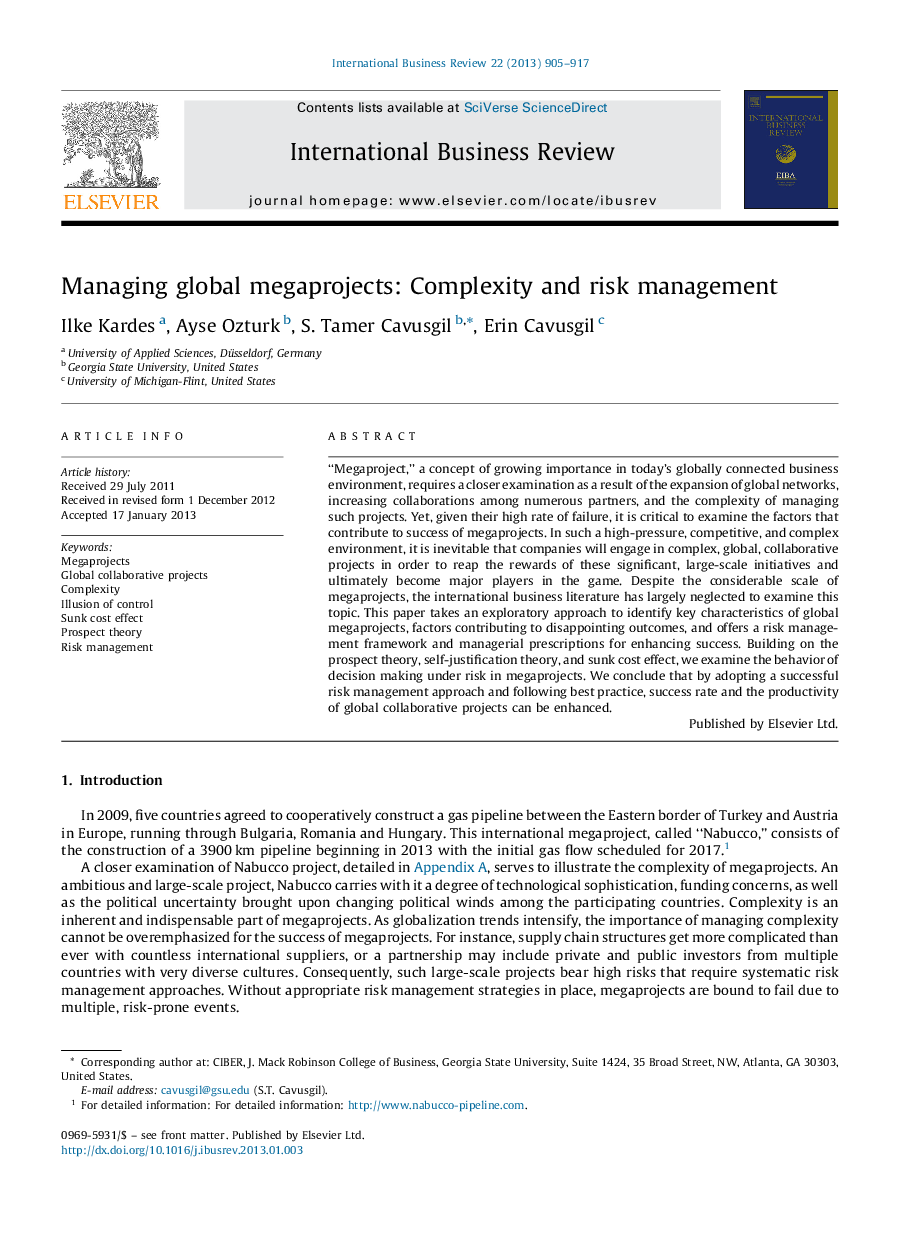| Article ID | Journal | Published Year | Pages | File Type |
|---|---|---|---|---|
| 1001336 | International Business Review | 2013 | 13 Pages |
“Megaproject,” a concept of growing importance in today's globally connected business environment, requires a closer examination as a result of the expansion of global networks, increasing collaborations among numerous partners, and the complexity of managing such projects. Yet, given their high rate of failure, it is critical to examine the factors that contribute to success of megaprojects. In such a high-pressure, competitive, and complex environment, it is inevitable that companies will engage in complex, global, collaborative projects in order to reap the rewards of these significant, large-scale initiatives and ultimately become major players in the game. Despite the considerable scale of megaprojects, the international business literature has largely neglected to examine this topic. This paper takes an exploratory approach to identify key characteristics of global megaprojects, factors contributing to disappointing outcomes, and offers a risk management framework and managerial prescriptions for enhancing success. Building on the prospect theory, self-justification theory, and sunk cost effect, we examine the behavior of decision making under risk in megaprojects. We conclude that by adopting a successful risk management approach and following best practice, success rate and the productivity of global collaborative projects can be enhanced.
► This exploratory study identifies characteristics of global megaprojects and factors leading to disappointing outcomes. ► Building on the prospect theory and self-justification theory, we examine decision making in megaprojects. ► The study incorporates conceptual contributions such as moral hazard, illusion of control and sunk-cost effect literature. ► We offer a risk management framework and managerial prescriptions for enhancing success of megaprojects.
